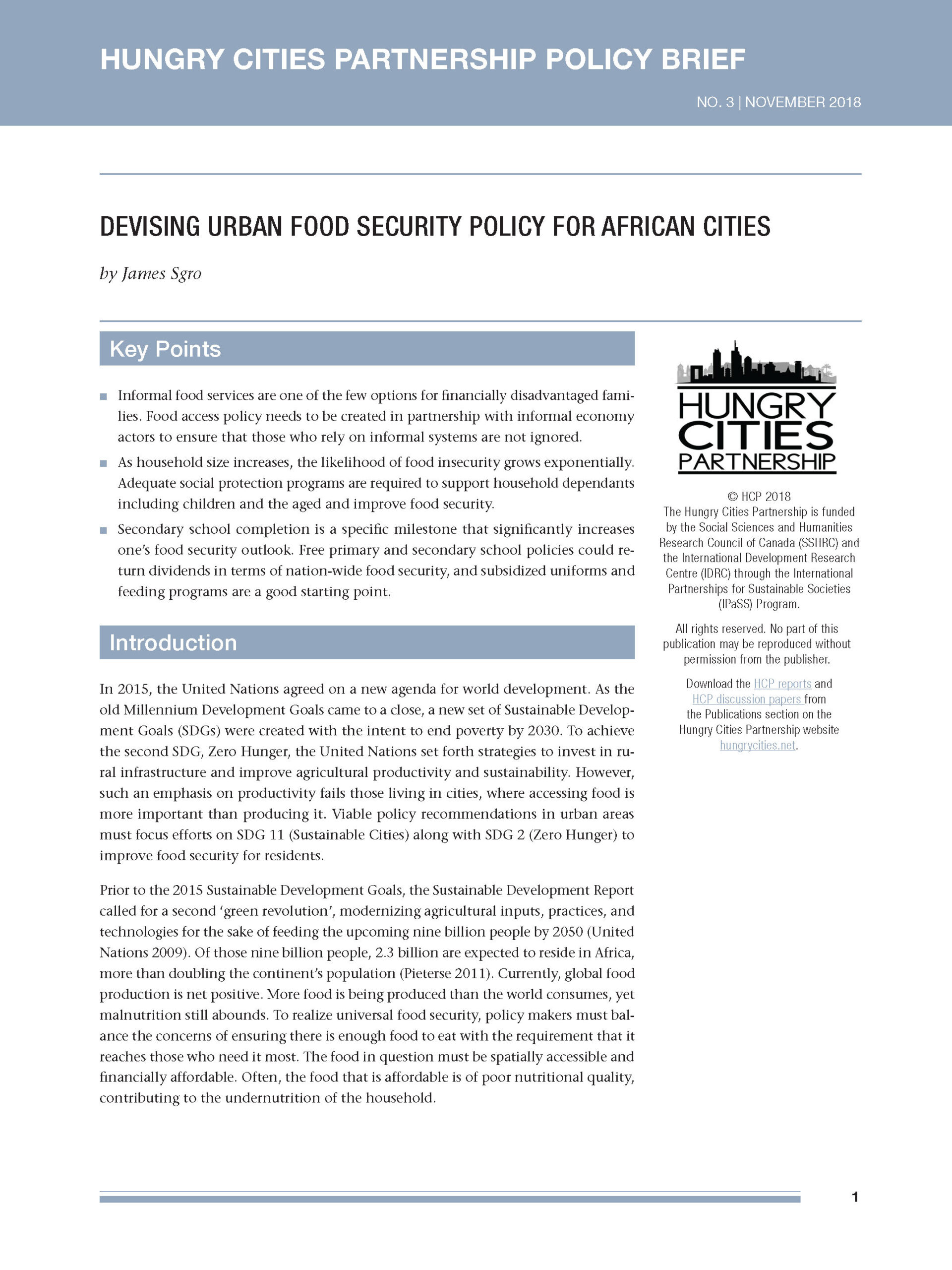Informal food services are one of the few options for financially disadvantaged families. Food access policy needs to be created in partnership with informal economy actors to ensure that those who rely on informal systems are not ignored.
As household size increases, the likelihood of food insecurity grows exponentially. Adequate social protection programs are required to support household dependants including children and the aged and improve food security.
Secondary school completion is a specific milestone that significantly increases one’s food security outlook. Free primary and secondary school policies could return dividends in terms of nation-wide food security, and subsidized uniforms and feeding programs are a good starting point.

